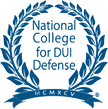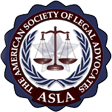Washington Drug Laws – What to Know
When facing a drug charge near Seattle or around King County, understanding what you’re facing can be challenging.
Washington’s drug laws are outlined in Chapter 69.50 of the Revised Code of Washington (RCW). These provisions are complex and designed to differentiate between individual users, large-scale traffickers, and everything in between. As such, the penalties can vary widely based on the nature of the drug crime, the type of controlled substance, the amount in question, and the other factors involved.
The Elements of a Drug Charge
To successfully prosecute someone for a drug offense in Washington, the prosecution must establish certain foundational elements beyond a reasonable doubt. These elements are crucial in determining the nature and severity of the charges and the potential penalties.
The Nature of the Drug
Washington classifies drugs into distinct schedules based on their potential for abuse and accepted medical use. For instance, while marijuana has been legalized for recreational and medicinal use, it still has regulations.
On the other hand, drugs like meth, cocaine, and heroin are deemed to have a high potential for abuse and no accepted medical use. This classification plays a significant role in determining the consequences of its possession, distribution, or manufacture.
The Amount of Drugs
The quantity of the drug someone possesses is a crucial factor in drug crimes. Possession of small amounts might be interpreted as for personal use, which typically carries less serious penalties.
In contrast, larger quantities imply an intent to distribute or sell them to others, which carries significantly harsher penalties, including potential felony drug charges and longer prison terms.
Your Intent
Washington differentiates between those who possess drugs for personal consumption and those involved in the distribution or sale. Evidence of intent can include large amounts of cash, packaging materials, scales, or communications related to the sale of drugs.
Proving intent can elevate a simple possession charge to a more serious distribution or trafficking charge. This will influence the potential penalties and how aggressively law enforcement will seek a conviction.
Aggravating Factors
The details surrounding a Seattle drug arrest can significantly influence the severity of the charges. For example, if drugs are found near weapons, it can result in additional charges or enhanced penalties. Similarly, committing a drug offense in certain zones, like near schools or parks, can lead to more severe repercussions. Additionally, involving minors in drug activities through sale, distribution, or exposure can elevate charges and result in stiffer punishments.
By understanding the nature of Washington’s drug laws, you can make better, well-informed decisions about your case.
Washington Drug Crime Penalties
Based on the factors discussed, drug charges in Washington are classified as either misdemeanors or felonies.
Misdemeanor Drug Offenses
Misdemeanor drug crimes are less serious than felonies but are still criminal convictions that must be addressed. Misdemeanor drug charges might include possessing a small amount of marijuana or possessing drug paraphernalia. They are further categorized into simple and gross misdemeanors based on severity.
For standard misdemeanor cases, penalties could include up to 90 days in jail and a $1,000 fine. Gross misdemeanors can carry up to a 364-day jail sentence and up to $5,000 in fines.
Felony Drug Crimes
Felony drug penalties are much more severe than misdemeanors. Felonies are categorized into three classes based on their severity: Class C, Class B, and Class A.
- Class C drug felonies are the least severe. These can result in penalties of up to 5 years in prison and fines reaching $10,000. Class C felonies often include possessing controlled substances such as methamphetamine or cocaine without the intent to distribute.
- Class B drug felonies carry sterner repercussions, with potential sentences of up to 10 years in prison and fines up to $20,000. They typically include crimes like selling or distributing controlled substances or possessing a significant quantity with distribution intentions.
- Class A drug felonies are the most severe. They can lead to life imprisonment and fines as high as $50,000. Offenses often involve crimes like manufacturing or orchestrating expansive drug trafficking schemes.
Negative Effects of a Drug Conviction
Beyond the immediate penalties like jail and fines, having a drug conviction on your record can disrupt virtually every aspect of your life.
A Drug conviction Can Result In:
- Driver’s license suspension
- Issues pursuing or continuing education
- Employment struggles or job loss
- Complications or denials in acquiring professional licenses
- Reduced child custody or visitation rights
- Immigration status concerns and potential deportation
- Travel restrictions
- For felony convictions, loss of firearm rights and voting rights
Drugs Charges in King County – What to Expect
When arrested for a drug-related offense, you may be booked into the local jail, photographed, fingerprinted, and processed. Depending on the circumstances, you might be released if the police believe you are no longer a danger to yourself or others. But sometimes, bail might be required to secure your release in a drug case.
Following your arrest, you must attend an arraignment in one of the superior or district courts, such as Seattle or Kent. Here, you’ll learn of the official charges and enter a plea.
After the arraignment, your attorney will review the police report, consult with you, commence negotiations with the prosecutor, and file any appropriate legal motions. If no resolution is reached, the case may proceed to trial.
Depending on the circumstances, your attorney might recommend that you obtain a drug assessment from a state certified treatment agency and commence any treatment recommended by the counselor. Proactivity in treatment can illustrate to the prosecutor and judge that you are getting education and assistance in getting sober. Treatment compliance as mitigation may lead to a reduction in charges or consideration for diversion or drug court.
Work with a Local Drug Crime Defense Lawyer
The importance of having an experienced drug crime lawyer cannot be overstated. They can review your case, identify weaknesses in the prosecution’s arguments, and develop a tailored defense strategy. This can include challenging the search that resulted in the discovery of the drugs in question, refuting the roadside tests involved, or even securing alternative resolutions to your charges, like a drug diversion program or a private treatment facility.
Defending Against Drug Charges
Being charged with a drug crime is not open and shut, despite what any police officer or prosecutor tells you.
There are numerous strategies that a defense lawyer can employ to contest drug charges or even get them dismissed. Common defenses in drug cases include challenging the search, contesting the admissibility of faulty evidence, questioning the results of lab tests, and arguing that your offense stemmed from your addiction.
It’s crucial to consult with a skilled drug crime defense attorney to ensure every option is explored. While public defenders are competent attorneys, their caseloads often prevent them from giving individual cases the attention they require.
Drug Diversion Programs in Washington
Like other parts of Washington, King County Drug Diversion Court offers a minimum 10-month program for eligible individuals charged with drug and property offenses. This program integrates criminal justice resources, substance use treatment, and community services to enhance community safety and assist participants in rebuilding their lives.
Those with a history of violent crimes, sex offenses, felony assault, or weapon involvement in their case are ineligible. Successful completion of the program, including regular treatments and random drug tests, results in charge dismissal. Failure to complete the conditions of the program results in sentencing based on the initial charge.






